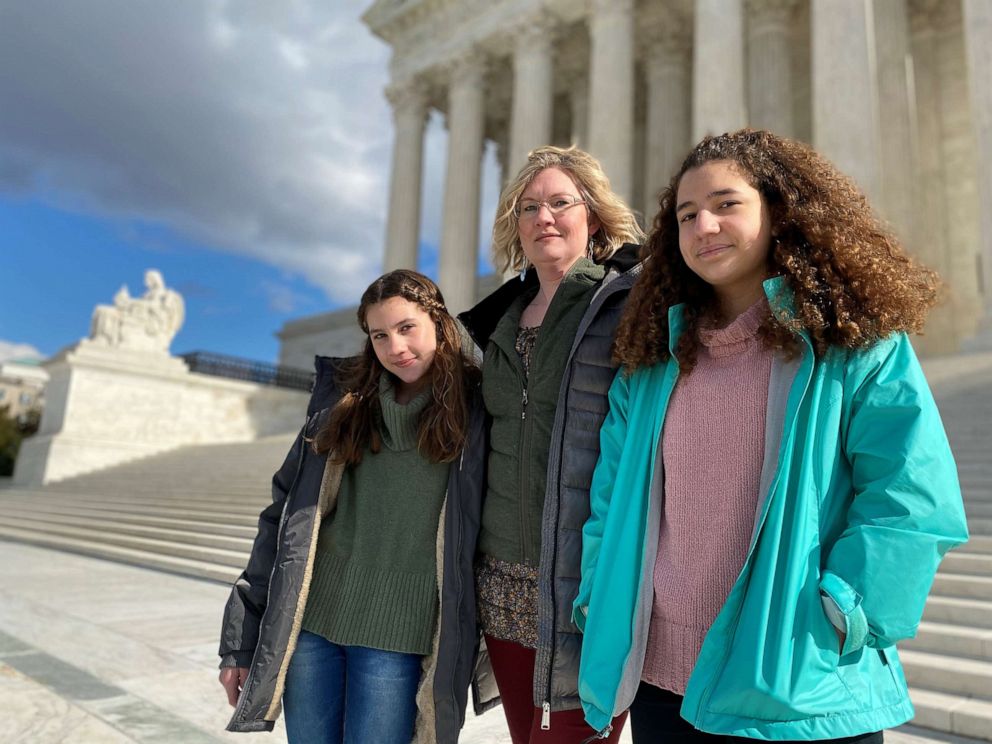Religion and school choice on the line in 'crucial' Supreme Court case
Teacher's union chief says case could be "earthquake" for public schools.
The battle over school-choice programs and state aid for religious schools returns to the U.S. Supreme Court this week as three mothers from Montana ask the justices to uphold a scholarship program that would help fund Christian education for their children.
The case is a major test for the balance between dueling constitutional principles: protection for religious freedom and a prohibition against government support of religion.
Union officials say the case could be hugely consequential for public schools.
“If the decision goes in a certain way, it will be a virtual earthquake,” said Randi Weingarten, president of the American Federation of Teachers, who fears a blow to state funding of public education.
In 2015, the Montana legislature approved dollar-for-dollar state tax credits of up to $150 per year meant to encourage donations to a scholarship fund that supports low-income children seeking to attend private schools of their choice. Mothers Kendra Espinoza, Jeri Anderson and Jamie Schaefer, all plaintiffs in the case, say they could not afford tuition payments to send their kids to Stillwater Christian School in Kalispell without the financial aid.
But the Montana Department of Revenue imposed an administrative rule prohibiting use of the tax-credit supported scholarships for religiously-affiliated education, citing the state’s constitution, which explicitly bans use of public funds – directly or indirectly. The parents then sued.

In 2018, the Montana Supreme Court struck down the scholarship program in its entirety.
The plaintiffs argue that Montana’s constitution is “bigoted” towards religion and violates the First Amendment’s religious free exercise clause.
The law requires “neutrality not hostility toward religion in student aid programs,” they write in court documents.
Sixty-nine percent of Montana’s private schools are religiously-affiliated, according to the plaintiffs and “dozens” of families have taken advantage of the state’s scholarship program to send their children to those schools.
“Allowing religious schools to participate in these programs is crucial. Most private schools in America are religious, and many parents, like Kendra, prefer them,” Erica Smith and Dick Komer, attorneys at the Institute for Justice, the nonprofit group representing the parents in the case, wrote in a USA Today Op-Ed. “Religious schools often tout strong academics, a close-knit community and the same values that religious families teach at home.”
Montana argues its high court's decision to nullify the scholarship program is not hostility toward religion but rather “reflects the view that barring aid to religious institutions promotes religious freedom.”
“What the state has decided to do is not distinguish between schools,” said David Strom, general counsel at the American Federation of Teachers, supporting Montana in the case. “Instead, Montana simply does not have a program that is supporting vouchers for tax credits at all. States should be allowed to make that decision.”
In its brief to the court, attorneys for Montana describe their view of Supreme Court precedent: “A state can decline to rebuild church playgrounds – but only if it declines to rebuild any playgrounds. And it can decline to support religious private schools – but only if it declines to support any private school,” they say.
Thirty-seven states, including Montana, have explicit constitutional bans on any public funding for religiously-affiliated schools.
The court’s decision is expected by the end of June.




